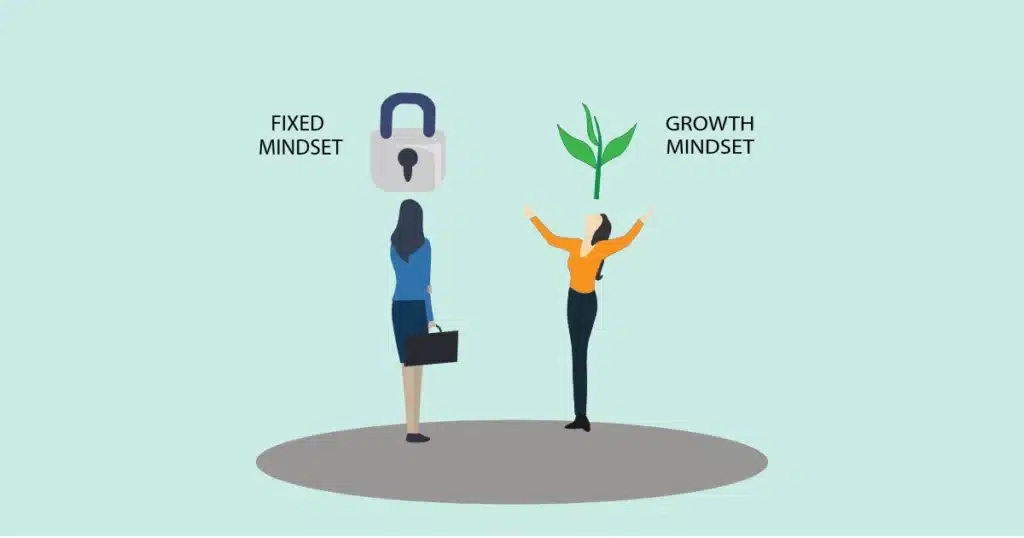Does Your Workplace Have a Growth Mindset?

Photo credit: iStockphoto.com (Maria Stavreva)
Carol S. Dweck, Ph.D., famously taught millions of people to recognize the significant benefits that flow from thinking our intelligence or personality is, in her words, “something you can develop, as opposed to something that is a fixed, deep-seated trait.”
When we have a fixed mindset–that is when we see intelligence as static–this tends to lead to a desire to look smart, which can lead to a tendency to avoid challenges, give up quickly in the face of obstacles, and see effort as fruitless or worse, she explained in Mindset: The New Psychology of Success. The result: People with a fixed mindset may plateau early and achieve less than their full potential.
On the other hand, people with a growth mindset see intelligence as something that can be developed, leading to a desire to learn and, in turn, a tendency to embrace challenges, persist in the face of setbacks, and see effort as the path to mastery. The result: They reach ever-higher achievement levels, giving them a greater sense of free will.
But can organizations and other cultures also have mindsets?
Mary C. Murphy, Ph.D., who studied under Dweck and is now a professor of psychological and brain sciences at Indiana University, says absolutely.
“Growth mindset culture is the next frontier of the mindset movement,” says Murphy, the founder and CEO of the Equity Accelerator, a research and consulting organization that works with schools and companies to create more equitable learning and working environments. “Growth mindset cultures communicate that ability and talent are things we can develop and expand with good strategies, persistence, measured risk-taking and learning from our mistakes.”
Just as our fixed and growth mindsets can be situational, certain situations within cultures can trigger the fixed or growth mindset in team members.
Four Mindset Triggers
Murphy identifies four mindset triggers:
Evaluative situations
“These are the situations where we anticipate being evaluated by someone else,” says Murphy. Examples include preparing a presentation for your team or writing a report you know many people will read.
High-effort situations
“High-effort situations are situations where maybe we’ve been given a stretch assignment, maybe we are trying to master a whole new domain or area in our work – something we’ve never done before,” says Murphy.
Critical feedback
In these circumstances, “the evaluation has come, and the feedback is not so good,” says Murphy.
Others’ success
“This is a big one in academia. It’s a big one in a lot of places. It’s the frenemy mindset trigger, where you’re watching someone’s career, knowing who they are, and following their success. And maybe they got the big award you thought you’d be eligible for this year.”
In each of these scenarios, we can be triggered into a fixed or a growth mindset. For example, if the success of others triggers us into a fixed mindset, Murphy explains, “We may feel that success is zero-sum and that we’re going to have to double down to outperform others.” That could include being motivated toward unethical behavior, such as hoarding information or leaving someone off calendar invitations.
On the other hand, if others’ success triggers us into a growth mindset, we can find inspiration in their success and learn from the strategies used to improve ourselves.
“So mindset cultures end up shaping almost everything about us,” Murphy says, including “how we will self-present to those groups, our companies, our teams, and how we ultimately come to see ourselves.”

Dr. Mary C. Murphy spoke at the 2024 California Conference for Women.